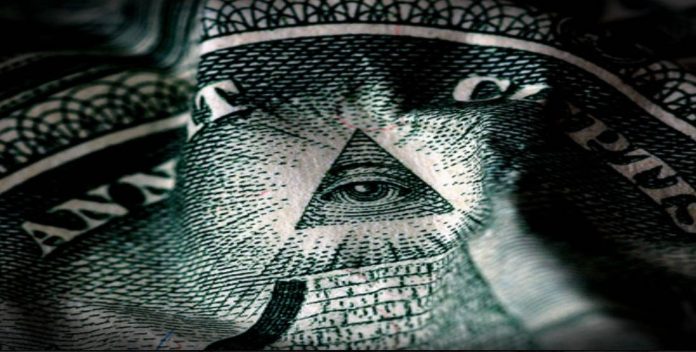The world is currently undergoing a stability crisis, that could lead to World War Three and end in a New World Order. The state of geopolitics have gone multipolar, and the days of the United States, the West, being the dominant force in a bipolar world are coming to an end, welcome to the multipolar world order.
Several countries are now calling for the end of the West-led World Order. For the past several decades the world has sat on the edge of a bipolar world order, which has largely stabilized geopolitics. However, given the weakening of US dominance, other countries have risen in power and influence, leading us to the edge of multipolarity.
Multipolar world orders are increasingly unstable, and alliances are continually shifting, which leads to conflicts, wars, and rumors of wars.
Russia recently called for the end of the current world political system, which is dominated by the West and stated they desire a ‘pragmatic’ relationship with the United States. India claims that the West led global order has ‘reached its limits,’ and is calling for other countries to rise to power.
It is evident, that over the course of the last several years, the United States has been deliberately weakened by rogue forces within our government. It is also clear that other ‘agenturs’ have worked tirelessly to enlarge other countries around the world. Thus, bringing us to our current situation of multipolarity.
Russia
Russian Foreign Minister Sergei Lavrov called Saturday for an end to a world order dominated by the West and said Moscow wanted to establish a “pragmatic” relationship with the United States.
Lavrov was speaking at the Munich Security Conference shortly after US Vice President Mike Pence told the audience Washington remained “unwavering” in its commitment to the US-led NATO military alliance as it faced a more assertive Russia.
Lavrov said that the time when the West called the shots was over and, dismissing NATO as a relic of the Cold War, added: “I hope that (the world) will choose a democratic world order — a post-West one — in which each country is defined by its sovereignty.”
Lavrov said Moscow wanted to build relations with Washington which would be “pragmatic with mutual respect and acknowledgement of our responsibility for global stability.”
India
The quest to reimagine the ethic and vocabulary of globalisation is not India’s alone. In January, President Xi Jinping donned the mantle of benefactor of the World Economic Forum in Davos and made a case for free trade (and China’s unfettered access to Western markets). On the same day, Prime Minister Narendra Modi opened the Raisina Dialogue in New Delhi by stating baldly: “Globally connected societies, digital opportunities, technology shifts, knowledge boom and innovation are leading the march of humanity … But walls within nations, a sentiment against trade and migration, and rising parochial and protectionist attitudes across the globe are also in stark evidence. The result: globalisation gains are at risk and economic gains are no longer easy to come by.”
The globalisation narrative is being reimagined by the leaders of both China and India. This has economic implications, but comes with political baggage too – for only one of these narratives is rooted in liberal democratic values. It is for India to promote its narrative, as much as for the West – even the transactional West – to make its choices.
China
The Xinhua state news organization quoted Xi saying, “The overall direction of multi-polarization of the world, the globalization of the economy and the democratization of international relations has not changed…No matter how the international situation changes, we must maintain our strategic steadiness, strategic confidence, and strategic patience.”
Further paraphrasing the president’s remarks, Xinhua wrote, “He called for global vision in national security work, coordinating development and security, combining principles with tactics, and taking the strategic initiative in China’s own hand.”
China is openly calling for a ‘world restructuring,’ which is formally called Beijing’s “Two Guides” policy, the communist nation is stressing international security as well as a reorganization of the world order, and Beijing is broadcasting this openly.
World Superpowers are calling for the end of the USA’s dominance; the question is how they will accomplish it. What say you reader?


![[VIDEO] Drag Queen Drag Shows Are Now Infesting Churches](https://christianjournal.net/wp-content/uploads/2019/11/Screenshot-2019-11-22-at-9.02.01-PM-218x150.png)
![[VIDEO] Starbucks Worker Dumps Milkshake On Open Air Preachers Head](https://christianjournal.net/wp-content/uploads/2019/11/Screenshot-2019-11-22-at-7.23.43-PM-218x150.png)
![[VIDEO] Man Arrested For Threatening To Kill Female Abolitionist With Crowbar](https://christianjournal.net/wp-content/uploads/2019/11/MLock-1-218x150.jpg)
![[VIDEO] Drag Queen Drag Shows Are Now Infesting Churches](https://christianjournal.net/wp-content/uploads/2019/11/Screenshot-2019-11-22-at-9.02.01-PM-100x70.png)
![[VIDEO] Starbucks Worker Dumps Milkshake On Open Air Preachers Head](https://christianjournal.net/wp-content/uploads/2019/11/Screenshot-2019-11-22-at-7.23.43-PM-100x70.png)
![[VIDEO] Man Arrested For Threatening To Kill Female Abolitionist With Crowbar](https://christianjournal.net/wp-content/uploads/2019/11/MLock-1-100x70.jpg)


